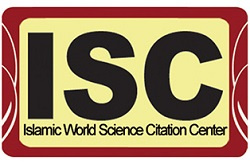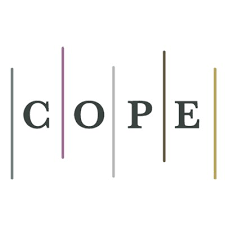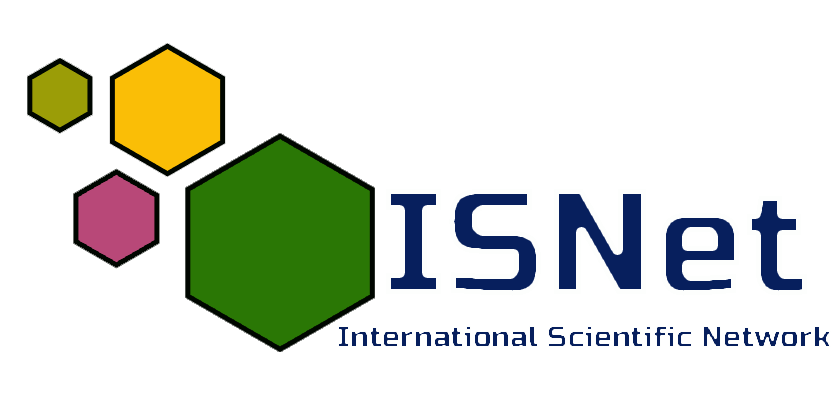Investigating the Mediating Role of Organizational Culture in the Relationship between Transformational Leadership and Organizational Effectiveness
DOI:
https://doi.org/10.52547/ijimes.2.1.85DOR:
https://dorl.net/dor/20.1001.1.27832678.2022.2.1.7.4Keywords:
Ideal Influence, Inspirational Motivation, Organizational Culture, Organizational EffectivenessAbstract
Purpose: The aim of this study was to investigate the effect of transformational leadership dimensions on organizational effectiveness with respect to the mediating role of organizational culture.
Methodology: The statistical population of this research is Iranian knowledge-based companies, which at the time of collecting research data, their number is 4551 companies. Data collection method was based on three questionnaires: MLQ leadership styles, Hofstede organizational culture and Parsons organizational effectiveness. The analysis of research data was done through structural equation modeling and using Smart PLS software in two parts: measurement model and structural model. The sampling method used in this study is stratified random sampling method and the sample studied in this study using Cochran's formula, 354 companies were obtained, of which 354 questionnaires were distributed online among these companies and 175 The completed questionnaire was collected for analysis.
Findings: The findings of the present study show that the effect of ideal influence and motivational motivation variables on organizational culture and also the effect of organizational culture on organizational effectiveness is positive and significant and also organizational culture mediates the relationship between transformational leadership and organizational effectiveness.
Originality/Value: Given that traditional methods of management and leadership, in today's changing and dynamic conditions, lack the necessary effectiveness, so a change in the leadership style of managers and the use of transformational leadership is necessary to achieve organizational effectiveness.
Downloads
References
Kumari, P. & Thapliyal, S. (2017). Studying the Impact of Organizational Citizenship Behavior on Organizational Effectiveness. International Academic Journal of Organizational Behavior and Human Resource Management, 4(1), 9-21.
Nikookar, H., Ahi, P., Akbari, M. (2021). The Impact of Vision Leadership on Organizational Effectiveness: The Mediating Role of Organizational Citizenship Behavior. The Journal of Productivity Management, 15(2(57) summer), 107-138.
Mwai, G., Namada, J., & Katuse, P. (2018). Does Leadership Style Influence Organizational Effectiveness in Non-Governmental Organizations? International Journal of Business and Management, 13(8), 52-64.
Mikaeili, A., Farhangi, A. A., & Hoseini Dana, H. R. (2021). A study of transformational leadership style and its relationship with organizational effectiveness in the Radio and Television Organization. Journal of Cultural Management, 15(53), 37-62.
Gharachorloo, N., Nahr, J. G., & Nozari, H. (2021). SWOT analysis in the General Organization of Labor, Cooperation and Social Welfare of East Azerbaijan Province with a scientific and technological approach. International Journal of Innovation in Engineering, 1(4), 47-61.
Nouri, F., & Samadzad, S. (2019). Comparative Study of Factors Affecting Human Resources Productivity in Scientific and Technological Organizations of Selected Countries and Component Evaluation in Academic Center for Education, Culture and Research.
Hakimi. (2019). Investigating the mediating role of intellectual capital in the relationship between transformational leadership and employees' perceptions of business performance. Transformation Management Research Journal, 11 (1), 57-80.
Madjid, A., & Samsudin, M. (2021). Impact of Achievement Motivation and Transformational Leadership on Teacher Performance Mediated by Organizational Commitment. Educational Sciences: Theory & Practice, 21(3), 107-119.
Jafari, R. (2021). Investigating the Impact of Transformational Leadership Style on Organizational Entrepreneurship. Journal of Accounting and Management Vision, 4(41), 123-131.
Wanasida, A. S., Bernarto, I., Sudibjo, N., & Pramono, R. (2021). Millennial transformational leadership on organizational performance in Indonesia fishery startup. The Journal of Asian Finance, Economics, and Business, 8(2), 555-562.
Zineldin, M. (2017). Transformational leadership behavior, emotions, and outcomes: Health psychology perspective in the workplace. Journal of Workplace Behavioral Health, 32(1), 14-25.
Bakhtiari, F., Mansoureh, B., Moghadam, M., Ahanchian, M., Kareshki, H. (2014). Assessing the ideal influence of managers in Salehabad educational complexes, Quarterly Journal of New Approach in Educational Management, 5 (20); 196-216.
Ahmadi, A., Shahbazi, M., Bigli, S. (2014). The relationship between managers' leadership style and employee creativity with the mediating role of organizational culture in Tehran Social Security Insurance Organization, Humanities Research, 30 (5); 112-149.
Hendrato, M. L., & Subyantoro, A. (2021, January). The Effect of Organizational Culture and Information Technology on Employee Performance with Employee Satisfaction as a Mediator in The Electronic Court System (E-Court) in District Court of Sleman, Yogyakarta. In 4th International Conference on Sustainable Innovation 2020-Accounting and Management (ICoSIAMS 2020) (pp. 242-246). Atlantis Press.
Lam, L., Nguyen, P., Le, N., & Tran, K. (2021). The relation among organizational culture, knowledge management, and innovation capability: Its implication for open innovation. Journal of Open Innovation: Technology, Market, and Complexity, 7(1), 66.
Nikpay, I., & Zand Karimi, M. (2019). The Impact of Authentic Leadership on Organizational Bullying with the Mediating Role of Organizational Culture. Organizational Culture Management, 17(2), 317-336.
Motalebi, V., and Askari, A. (2019), The effect of organizational culture and knowledge management on organizational excellence, Quarterly Journal of Marine Science Education. 4 (4); 134-149.
Ebrahimi, A., Abbasi, A., and Karanjam, S. (2019). Galactic Model, New Metaphors in the Field of Organizational Culture Case Study: Mohammad Rasoolullah Research Tower, Shiraz University of Medical Sciences, Organizational Culture Management, 17 (1); 172-145.
Eydi, H. (2015). Analysis of Organizational Effectiveness Approaches (Case Study: Sporting Organizations Field). International Journal of Management Science, 15, 1-8.
Drucker, P. F. (1964). Controls, control and management. Management Controls: New Directions in Basic Reasearch, New York, McGraw-Hill, 286-296.
Sadeghzadeh, N., ebrahimpour, A., rabiee, M., darman, F. (2021). The Impact of Value-Based Cultural Transformation through Strategic Leadership and Knowledge Management on Organizational Performance in Faculty Members of Islamic Azad University, Tehran South Branch. Journal of Human Capital Empowerment, 4(1), 13-28.
Waez Ghasemi, M., and Zad Shafaq, M. S., (2019). The interaction of strategic leadership behaviors and organizational culture in the strategic coordination of information systems and business and the integration of organizational systems. Journal of New Research Approaches in Management and Accounting, 3 (17), 89-116.
Abu Turabi, Z., Haj Akbari, Z., Nazari, N., and Shayegan, M. (2018), The effect of strategic leadership on organizational performance, Quarterly Journal of New Research in Management and Accounting, 5 (13); 127-151.
Shoghi, B., Aghajani, T., and Mortazavi, S M. (2013). The mediating effect of organizational culture on the relationship between managers' leadership style and staff creativity (Case study: Modares Hospital, Saveh), Productivity Management, 7 (26); 93-124.
Sehhat, S., Yar Ahmadi, M. (2016). Investigating the Effect of Strategic Leadership on Firm Performance (Case: Technology-driven Enterprises Listed in Tehran Stock Exchange). Organizational Culture Management, 13(4), 1065-1090.
Ghorbani, M., Barkat, M. (2013). The relationship between organizational culture and organiza-tional effectiveness based on organizational models Denison North Khorasan staff. Educational researches, 9(37), 1-22.
Campbell, N.,Ahmad, S., Ali, N. A., Jantan, A. H., Bowyer, D., & Reaz, M. (2020). Organizational effectiveness through transformational leadership and technology innovation: a systematic literature review and future research agenda. Journal of International Business and Management. 3(4), 1-17.
Lewa, P., Ngaithe, L. N., K’Aol, G. O., & Ndwiga, M. (2016). Effect of idealized influence and inspirational motivation on staff performance in state owned enterprises in Kenya. European Journal of Business and Management, 8(30),6-13.
Bhardwaj, A., Mishra, S., & Jain, T. K. (2020). Analysis of strategic leadership for organizational transformation and employee engagement. Materials Today: Proceedings, 37, 161-165.
Ali, B. J., & Anwar, G. (2021). Strategic leadership effectiveness and its influence on organizational effectiveness. International Journal of Electrical, Electronics and Computers, 6(2), 11-24.
Shao (2018). Interaction effect of strategic leadership behaviors and organizational culture on IS-Business strategic alignment and Enterprise Systems assimilation .International Journal of Information Management, 20(9). 0268-4012.
Bass, B. M., & Avolio, B. J. (1996). Multifactor leadership questionnaire. Western Journal of Nursing Research.
Hofstede, G., Hofstede, G. J., & Minkov, M. (1991). Cultures and organizations: Intercultural cooperation and its importance for survival. Software of the Mind London: McGraw-Hill.
Parsons, R. R. (1969). Band-to-band optical pumping in solids and polarized photoluminescence. Physical Review Letters, 23(20), 1152.
Samadzad, S., & Hashemi, M. (2021). Concentration and its Effect on Advertising: Case Study: Iranian Food and Beverage Industries. International Journal of Innovation in Management, Economics and Social Sciences, 1(1), 55-64.
Fornell, C., & Larcker, D. F. (1981). Evaluating structural equation models with unobservable variables and measurement error. Journal of marketing research, 18(1), 39-50.
Chin, W. W. (1998). Commentary: Issues and opinion on structural equation modeling. MIS quarterly, vii-xvi.
Henseler, J., Ringle, C. M., & Sinkovics, R. R. (2009). The use of partial least squares path modeling in international marketing. In New challenges to international marketing. Emerald Group Publishing Limited.
Published
How to Cite
Issue
Section
License
Copyright (c) 2022 Naser Shirini, Athena Xenikou

This work is licensed under a Creative Commons Attribution 4.0 International License.












